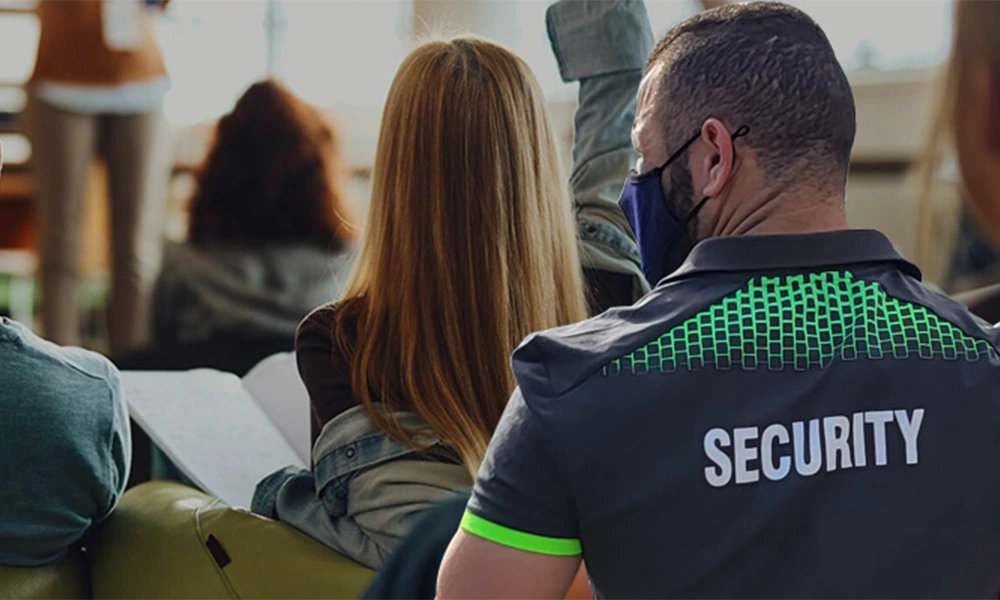In today’s rapidly evolving landscape, the importance of school security has never been more paramount. As a premier security company based in Western Australia, we at Accord Security recognise the critical role that comprehensive security measures play in fostering a safe and conducive learning environment. This article delves into the multifaceted aspects of school security, elucidating its significance, the underlying principles, and the evolving expectations of parents and stakeholders.
1. The Imperative of School Security:
Safeguarding Students and Staff
At the heart of school security lies the fundamental imperative to safeguard the well-being and safety of students, educators, and staff. Establishing a secure environment mitigates risks, deters potential threats, and ensures that schools remain sanctuaries of learning and growth.
Promoting Positive School Culture
Effective school security measures contribute to cultivating a positive school culture that values respect, inclusivity, and community engagement. By fostering a sense of belonging and security, schools can nurture an environment that promotes academic excellence, social-emotional development, and holistic well-being.
2. Why Campus Safety Matters:
Enhancing Learning Outcomes
A secure and safe campus environment enhances learning outcomes by providing students with the confidence, peace of mind, and conducive atmosphere they need to focus on their studies, engage in meaningful interactions, and pursue their academic aspirations.
Supporting Mental Health and Well-being
Prioritising campus safety supports the mental health and well-being of students, staff, and educators. By alleviating concerns about personal safety and security, schools can foster resilience, promote positive coping strategies, and create a supportive environment that prioritises holistic development.
3. Parent Expectations and the Role of Security Professionals:
Transparency and Communication
Parents expect transparency, open communication, and collaboration with school administrators and security professionals to stay informed about safety protocols, emergency procedures, and ongoing efforts to enhance campus security.
Proactive Measures and Preventive Strategies
Anticipating and addressing potential risks through proactive measures, risk assessments, and preventive strategies aligns with parent expectations for robust and comprehensive school security that prioritises the safety and well-being of their children.
Collaborative Partnerships
Building collaborative partnerships with parents, community stakeholders, law enforcement agencies, and emergency responders fosters a collective commitment to enhancing school security, sharing resources, and leveraging collective expertise to safeguard school communities.
4. Comprehensive Approach to School Security:
Risk Assessment and Mitigation
Conducting comprehensive risk assessments tailored to the unique characteristics, vulnerabilities, and needs of each school environment forms the foundation of effective school security planning. Identifying potential threats, assessing their impact, and implementing targeted mitigation strategies ensure a proactive and responsive approach to safeguarding school communities.
Implementing Robust Security Protocols
Implementing robust security protocols, including access control measures, surveillance systems, emergency response plans, and communication protocols, creates a secure and responsive school environment that deters potential threats, facilitates timely interventions, and supports coordinated responses to emergencies.
Fostering Positive Relationships and Trust
Fostering positive relationships, building trust, and maintaining open lines of communication with students, staff, parents, and community stakeholders strengthens the fabric of school communities, promotes a culture of shared responsibility, and reinforces the importance of collective efforts in enhancing school security and student protection.
5. The Role of Security Personnel in School Safety:
Expertise and Training
Security personnel play a pivotal role in enhancing school safety through their expertise, training, and dedication to safeguarding school communities. By maintaining a visible presence, monitoring campus activities, and responding promptly to potential threats, security professionals contribute to creating a secure and supportive learning environment.
Collaborative Approach
Collaborating closely with school administrators, educators, and staff, security personnel facilitate the implementation of security protocols, conduct regular drills and simulations, and provide guidance on best practices to enhance campus safety and emergency preparedness.
6. Leveraging Technology in School Security:
Advanced Security Systems
Embracing technological advancements, such as AI-powered surveillance systems, biometric authentication, and secure communication platforms, enhances the effectiveness, responsiveness, and scalability of school security measures, enabling timely interventions and coordinated responses to emergencies.
Digital Safety Measures
Implementing digital safety measures, including cybersecurity protocols, secure network infrastructure, and digital literacy initiatives, safeguards school networks, data, and digital assets from cyber threats and promotes responsible online behaviours among students and staff.
7. Community Engagement and Outreach Initiatives:
Engaging Stakeholders
Engaging students, parents, educators, and community stakeholders in collaborative initiatives, such as safety workshops, community forums, and outreach programmes, fosters a sense of shared responsibility, builds trust, and reinforces the importance of collective efforts in enhancing school security and student protection.
Promoting Awareness and Preparedness
Promoting awareness, preparedness, and proactive participation in school safety initiatives empowers individuals to contribute to creating a safer and more secure school environment, reinforces the importance of vigilance, and cultivates a culture of preparedness and resilience.
8. Continuous Improvement and Adaptation:
Evolving Security Landscape
Recognising the evolving security landscape and emerging threats, schools must remain vigilant, adaptable, and proactive in continuously evaluating, refining, and enhancing their security measures, protocols, and strategies to mitigate risks and address new challenges effectively.
Feedback and Evaluation
Soliciting feedback, conducting regular evaluations, and leveraging insights from security assessments, incident reports, and stakeholder feedback enables schools to identify areas for improvement, implement corrective measures, and drive continuous enhancement of school security and safety initiatives, reinforcing the importance of ongoing vigilance, collaboration, and innovation in safeguarding school communities.
In conclusion, understanding the importance of school security transcends mere compliance and regulatory requirements; it encompasses a broader commitment to safeguarding well-being, fostering positive school culture, and meeting the evolving expectations of parents and stakeholders. By prioritising campus safety, implementing comprehensive security measures, and fostering collaborative partnerships, schools can create an environment that supports academic excellence, promotes holistic development, and ensures the safety and well-being of every member of the school community. As a premier security company based in Western Australia, Accord Security remains committed to supporting schools in their efforts to enhance campus safety, uphold the highest standards of professionalism, and contribute to creating secure and nurturing learning environments.
